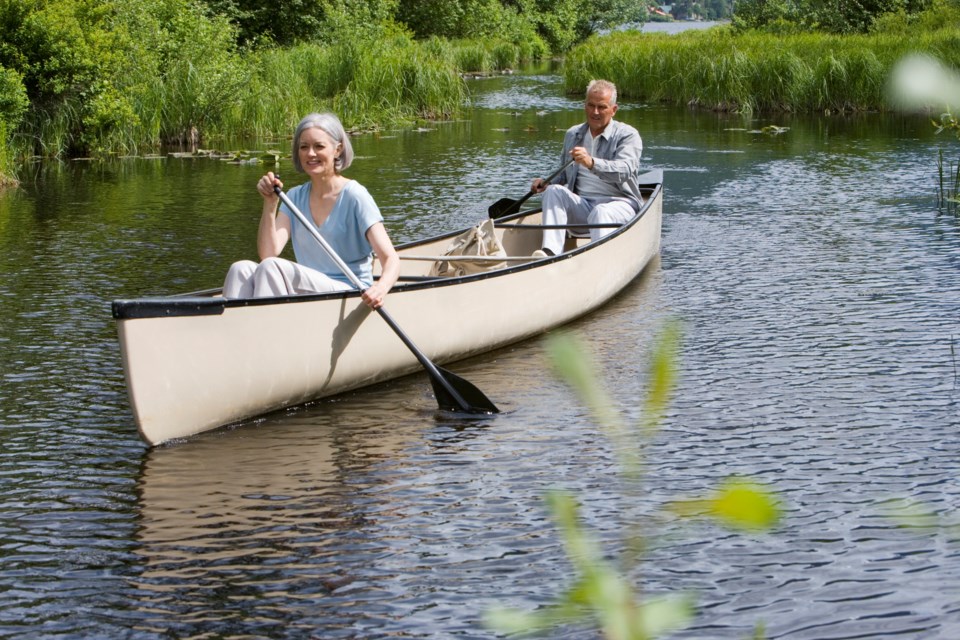There were several turns of phrase that seemed to burn themselves into our collective consciousness over the past harrowing few years of the COVID-19 pandemic. “Unprecedented” was a recurring staple, as well as that most jargony of business terms: “pivot.” Another aphorism we heard throughout the pandemic, a favourite of resort officials, was the notion of “building back better” post-COVID.
Locally, that meant taking a hard look at the resort’s future as a global destination, a dialogue already well underway by the time the virus reached Canada in early 2020.
“Pre-COVID visitation levels had reached a level where the need to understand the capacity levels of the resort had become a conversation,” read a recent municipal report. “Overtourism was placing pressure points on many community systems and appeared to be negatively impacting the experience of residents, which eventually impacts the experience of visitors.”
Today, after years of growing visitation and concern around how best to preserve the experience and natural assets that helped Whistler grow into a world-class resort, the issue takes on new urgency. It’s partly why officials and staff at the Resort Municipality of Whistler (RMOW) have identified “smart tourism” as one of its four core priorities over the coming term.
At the regular meeting of council on Tuesday, Feb. 21, the RMOW offered further insight into its overarching 2023-26 Strategic Plan, which is divided into four main priorities: housing, climate action, community engagement and smart tourism. In the second of Pique’s series delving further into the plan, we hone in on smart tourism.
“The draw of Whistler as a world-class, four-season resort destination means that visitation will continue to grow and our thinking and planning needs to evolve like these other destinations seeing similar challenges,” the report read. “Visitor volumes ultimately impact the need for employees and for infrastructure to support local and visiting populations and an appropriate balance of these systems must be considered.”
While smart tourism is the least defined of the four priorities in the RMOW’s Strategic Plan, it was identified, the report said, “to help us look at our parks, trails, tourism programming and transportation options to encourage dispersion throughout the resort.”
Striking a better tourism balance has been a key question at Tourism Whistler (TW) since at least 2019, when it undertook a tourism visioning exercise, both internally and in the wider community, coming off the heels of surging visitation.
“That’s really about finding ways to smooth visitation levels where we can, bringing down the peaks and boosting the valleys of visitation,” said TW president and CEO Barrett Fisher.
The destination marketing organization has offered packages promoting midweek or off-season stays, along with incentivizing longer stays in the resort. While these efforts were of course curtailed by the pandemic, Fisher said TW’s internal data indicates “we have seen a growth in the length of stay coming out of the B.C. market, and we have seen a shift in growth to some midweek traffic.”
Education is another important plank of the RMOW’s smart-tourism strategy. The municipality said it intends to explore ways to encourage visitors to “expand their experience when they arrive to include learning and interacting with, and potentially giving back to, the local community.” Officials are also hopeful to involve and invite guests in contributing to Whistler’s climate action initiatives.
It’s clear RMOW staff have their work cut out for them. As it further develops its smart-tourism approach, the municipality will look to other global tourism destinations to see how they effectively manage visitor volumes.
As part of the process, officials will strive to determine what a smart tourism economy looks like in Whistler, as well as identify any additional metrics the RMOW needs to consider when tracking the community’s progress towards becoming a “regenerative” destination.
“For the next year, we need to be looking at and getting clear on what we mean by it, where people in the world are leading on it, and what makes sense to be implementing in Whistler,” said municipal CAO Ginny Cullen. “Then, after we’ve had time to do that, we’ll have more concrete actions to speak to.”




